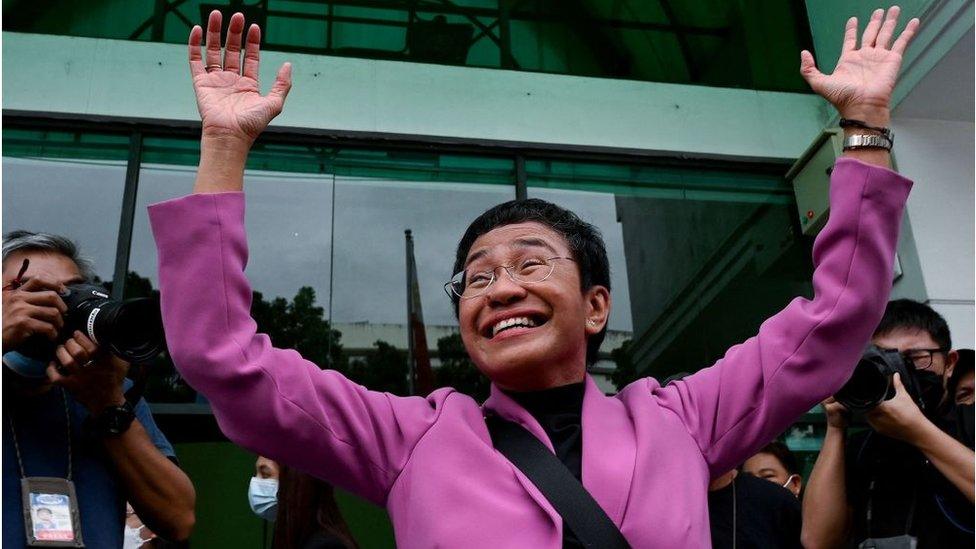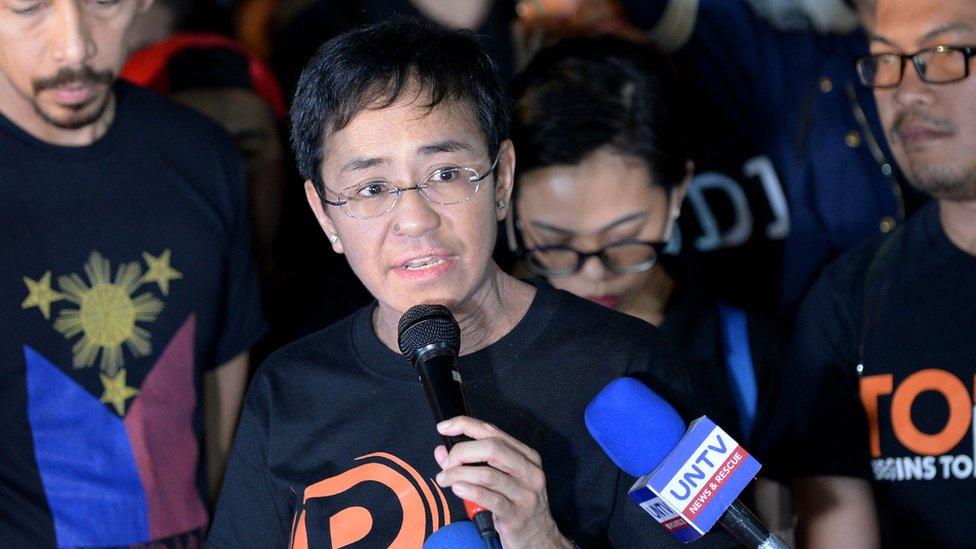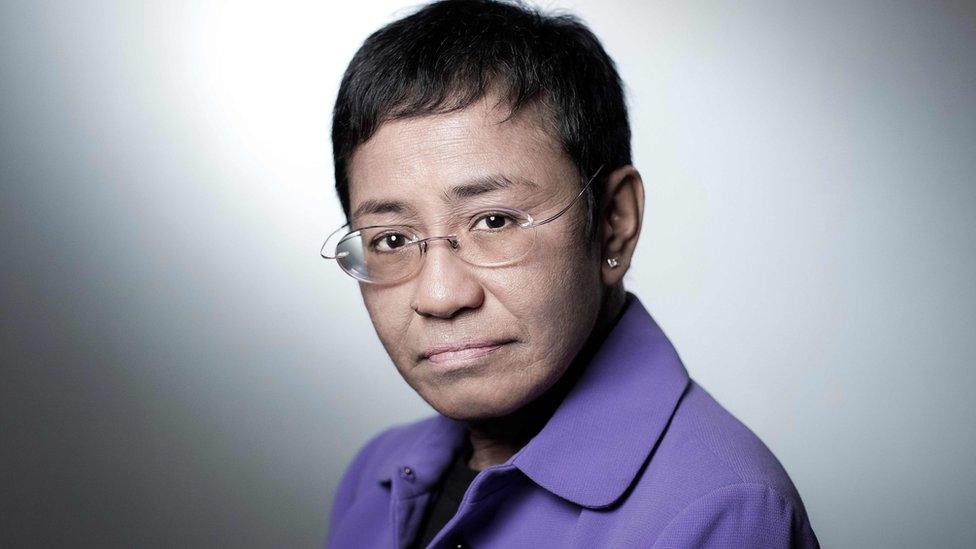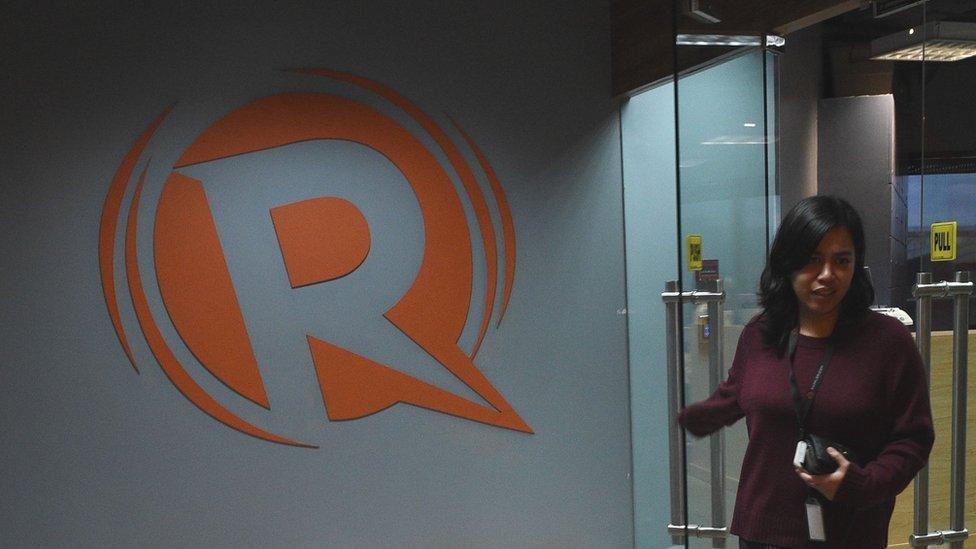Maria Ressa: Philippine journalist cleared of tax evasion
- Published

Ms Ressa was in a jubilant mood as she exited the court in Manila on Wednesday
A Philippine court has acquitted journalist Maria Ressa and news outlet Rappler of tax evasion, in a move hailed as a win for press freedom.
"Today, facts win, truth wins, justice wins," said Ms Ressa, who if convicted could have been jailed up to 34 years.
The Nobel laureate's legal victory marks the end of a case that began in 2018.
Ms Ressa, who founded Rappler, has been the target of legal action launched by the Philippine government.
Under former leader Rodrigo Duterte, the Philippine government had accused Ms Ressa and Rappler of evading tax payments when it raised capital through its partnership with foreign investors.
Philippines' justice department had said Rappler's issuance of financial instruments, known as Philippine Depositary Receipts, to foreign investors Omidyar Network and North Base Media had generated taxable income worth 141.86m pesos (£2.1m; $2.58m) which it did not declare in 2015.
Ms Ressa and Rappler denied the charges and said the transactions involved legitimate financial mechanisms that do not generate taxable income.
In its decision, the Philippines' Court of Tax Appeals said the prosecutors had failed to prove their guilt beyond reasonable doubt, and concluded that Ms Ressa and Rappler did not gain from the transactions, according to Rappler's report on the verdict.
Speaking to reporters after the verdict, Ms Ressa hailed it as a victory for "every Filipino who has ever been unjustly accused".
"These charges were politically motivated, they were incredible to us, a brazen abuse of power, and meant to stop journalists from doing their jobs. These cases are where capital markets, rule of law, and press freedom meet," she said.
Ms Ressa's lawyer Francis Lim said there could have been repercussions for other businesses seeking to raise capital if Philippine Depositary Receipts had been declared to be taxable income.
The Philippines' National Union of Journalists said the tax evasion case reflected an increasing use of law for reprisal and intimidation against journalists and civil society.
"While colleagues similarly face legal challenges - from libel to made-up terrorism charges - in relation to their work, we take inspiration from this acquittal that if we stand up and hold the line, we can win," the union said in a statement.
The Philippine government has repeatedly tried to shut down Rappler, which has done critical stories of Mr Duterte's administration. In January 2018, it revoked the news outlet's operating licence and said Rappler, which has two US investors, had violated a clause in the constitution that limits media ownership to Philippine citizens.
In 2022, regulators again ordered the shutdown of Rappler. The outlet said in response that it would not be closing and would challenge the order in court.
Ms Ressa was also previously convicted of libel and sentenced to up to six years in prison in June 2020. She was later freed on bail.
Wednesday's acquittal is not the end of Ms Ressa and Rappler's legal woes, as they still face three active court cases.
These are: Rappler's appeal against the 2022 closure order; an appeal by Ms Ressa and former Rappler journalist Reynaldo Santos Jr against convictions for cyber libel; and another tax case against Ms Ressa and Rappler.
Related topics
- Published29 June 2022

- Published11 November 2018

- Published15 January 2018
